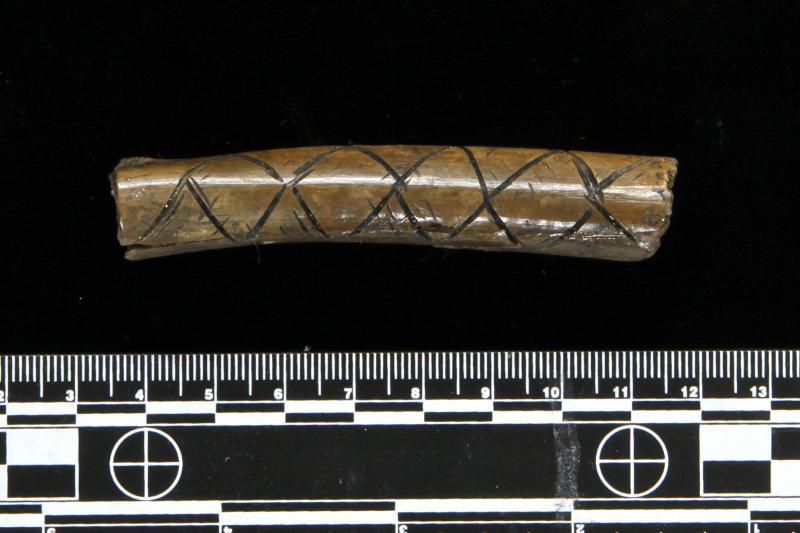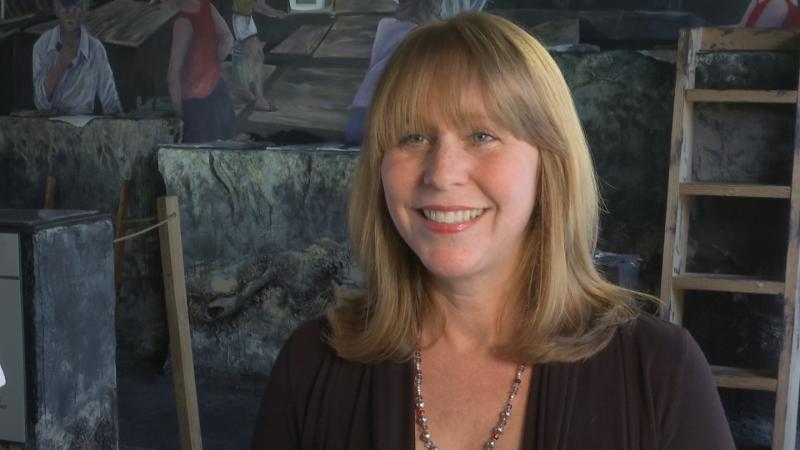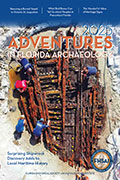Professional archaeologists, archaeology enthusiasts, and concerned citizens from throughout the state are opposing legislation currently being considered in Tallahassee.
House Bill 803 and Senate Bill 1054 would allow anyone who purchases a $100 permit to dig for historic artifacts in state owned waterways using a trowel. After dislodging the artifacts, a person could remove them, take them home, and even sell them.
Any context that archaeologists could provide for the artifacts and important opportunities to educate the public about our shared history could be lost.
“To understand the past in the fullest way possible, what is significant is not a particular object that we find, it’s what we find out about that object,” says Theresa Schober, president of the Florida Anthropological Society.
Seeing firsthand how an object is situated and documenting what other objects may be around it provides archaeologists with the contextual information they need to draw meaningful conclusions.
“It’s from context that we can determine what people were doing, how they were behaving in the past, what their social systems were like, and we lose that information as soon as an object is taken up and ends up in private hands or it ends up somewhere where it’s disassociated with its original context,” Schober says.
Some of Florida’s most significant archaeological discoveries have taken place in Brevard County. Artifacts and human remains discovered in Windover Pond were determined to be between 7,000 and 8,000 years old.
Patrisha Meyers is director of the Florida Historical Society Archaeological Institute at the Brevard Museum of History and Natural Science. Meyers points to an artifact on display at the museum in the People of Windover exhibit.
“This beautifully incised bird bone was only found with the burials of women,” Meyers says. “This contextual knowledge allows us to explore the question of gender roles in the past and helps us understand the differences and similarities between past populations and our own. Ultimately, anthropology is the study of our shared human experience, the study of that intangible element which makes us who and what we are today. By allowing this history, this context, to be taken by those seeking personal enrichment through ownership and sale of public artifacts, we are allowing the theft of knowledge regarding our cumulative past.”
The idea of allowing “citizen archaeology” in Florida is not new.
Between 1996 and 2005, the state operated a voluntary program called Isolated Finds, which allowed individuals to keep historic artifacts that they found if the objects were not part of a larger archaeological site. Individuals were supposed to report from where they removed an artifact and provide maps.
“An untrained person might not have those discerning identification skills to be able to tell whether they’re removing something from an intact archaeological deposit or not,” says Schober. “The reports from these isolated finds were analyzed and it was determined that there was widespread non-compliance. The majority of reports were from a very small number of individuals and what came out of a later investigation in the last few years by Florida Fish and Wildlife is that some of the individuals that are taking artifacts from Florida waters illegally, knowing that they are violating the law, would use this particular program as a way to bypass that legality.”
The proposed bills currently being considered are more aggressive than the Isolated Finds program, allowing individuals to use tools to dislodge artifacts. Archaeologists are concerned that if passed, these bills would essentially legalize treasure hunting at the expense of preserving history.
“We certainly encourage people to get in touch with their legislators,” Schober says. “There’s nothing more meaningful than a member of someone’s district weighing in on a piece of legislation.”
By opposing this pending legislation, the professional archaeology community is not trying to discourage public participation in the process of archaeological discovery.
“For non-professional individuals who are truly interested in archaeology, there are a variety of opportunities to engage in supervised archaeological activities and learn about the process of archaeological investigation,” says Meyers. “The Florida Public Archaeology Network often has volunteer opportunities as well as frequent public archaeology days. The Florida Anthropological Society has 17 chapters statewide. Many of these chapters assist professional archaeologists in their work.”









